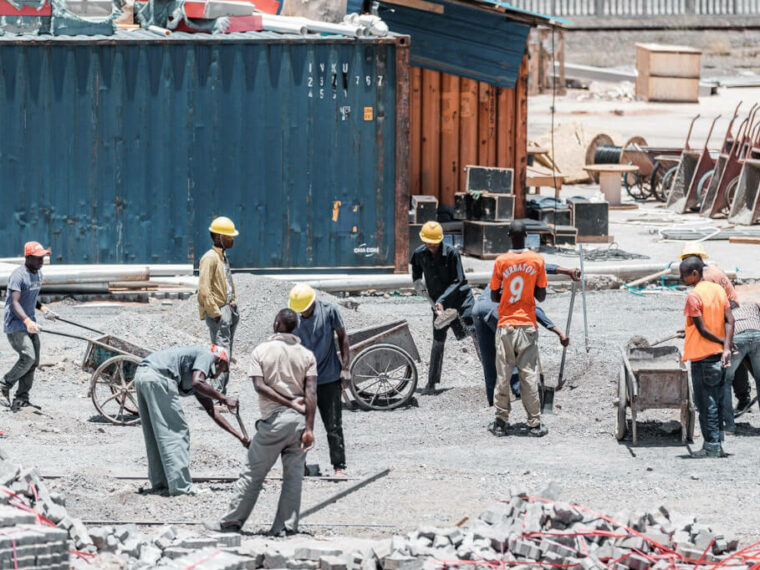Many people in South Africa think that their country is currently experiencing a skills crisis. An equal number of people wonder why this issue can’t be resolved by “taking an approach similar to that of Germany or Switzerland.” The way that this nation approaches the problem – as well as potential solutions – is the primary reason why it is unable to cultivate the appropriate skills to foster economic expansion.
There Are Two Sides to Consider in This Situation
To begin, in terms of the notion of “skill,” we understand it to be expertise that is both rooted in bodies of information and acquired through experience in the real world. Acquiring expertise can be done in school systems, career institutions, higher education institutions, online classes, or through job-based training programs.
Skill is used for and established in the workplace. But this is completely off base. The idea that if we could just determine exactly what it is that we want students to be able to do, it would be relatively simple to design an educational system that would give them the ability to do it is a prevalent one. Sadly, this is only the situation for very particular technical experiences, such as being able to ride a bicycle.
Secondly, we need to have an understanding that the development of skills occurs through a set of processes that are molded by economies, organizations, and social relations, and that also shape these factors. There is no such thing as a variable known as “skills” that can be altered on its own to bring about the desired improvements in the economy. We need to have an understanding of this complexity if we are going to make adjustments to how skills are formed and obtain the appropriate skills.
According to the findings of our studies at the Centre for Researching Education and Labor, it appears that:
When skills are viewed as something that should be disassociated from the practice and understanding in which they are located, this leads to curriculum reform efforts that are often misdirected and counterproductive. It is ridiculous, for instance, to suggest that “conflict resolution” can be taught on its own as if it were a standalone skill. The ideal or only locations to acquire skills such as social skills are not necessarily found in educational institutions.
The top and possibly only places to learn hypotheses, notions, and processes that are extremely difficult to comprehend outside of structured programs are educational institutions. Complicated, challenging to build, and requires intentional and renewed support as well as focused cultivation, educational institutions and structures are easy to dismantle despite their inherent complexity and difficulty.
The Voids
Education programs that are general rather than specifically vocational are necessary for areas where work requires specialized knowledge. Rather than teaching the limited and specific responsibilities of a particular workplace, these types of courses focus on the bodies of information that are found in occupational areas. In most cases, formal schooling is a waste of scarce resources because it consists of teaching people how to perform specific tasks.
The current strategy also has a second flaw that has to do with how skill formation systems are designed. A large number of programs in skill formation operate under the presumption that altering one component – the skills possessed by a population as a whole – will alter economies and societies.
This is consistent with the reasoning behind the human capital theory which is based on a straightforward input/output model that generates a positive feedback loop of increased skills, greater productivity, and increased wages.
This leads to ineffective intervention strategies from a policy perspective because it focuses solely on people and operates under the assumption that the effects of individuals can be added together. Even large institutions can be conceptualized as individuals who can be motivated by rewards.
What’s Required
What we require instead of a clean causal mechanism in which x causes y, and as a result, if we incentivize x, we will accomplish y, is to visualize a complicated structure in which adjusting any one component will have an impact on all of the other parts.
Both society and the economic system are intertwined with the educational system. It is impossible for it to exist independently of them and acquire insights, expertise, and skill sets in a void. Organizations and the connections between institutions are the spiderwebs that makeup societies on both the national and international levels.
According to the findings of recent research, the general trends of effective learning in richer nations vary greatly from one another. Because these differences are inherent to the various types of economies, they cannot be addressed using straightforward policy options or models that can be chosen and implemented as educational reforms.
The regulation of the labor market, union representation, welfare, economic strategy, and production regimes are examples of economic variables that sculpt skill-forming systems. Political factors, such as degrees of federalization and voting systems, also play a role in this process.
The relationships between schooling, economic hardship, and injustice are multi-directional and intricate in low- and middle-income countries. Poverty is the primary factor contributing to academic failure in South Africa, according to all available evidence, including the claims of those who maintain that improving educational opportunities is essential to reducing inequality.
There is no question that the educational system in South Africa faces challenges in a variety of areas, including but not limited to curriculum, teacher education, and other areas. However, poverty is an issue that makes teaching more difficult. It affects who can become an educator and how educators are coached. It also has an effect on how schools operate and the individual’s ability to learn.
The subsequent possibilities in the remainder of the system of education and training are molded by this intricate web of interconnected relationships that move in multiple directions. Deficiencies in other policy fields, which have caused and continue to contribute to mass joblessness and underemployment, cannot be made up for by improvements in education alone.
The nation needs to take a much more methodical approach to analyze the various components of the system that are required to support the demand for, as well as the development and utilization of, skill sets, and most notably, we require policies for economic transformations that are structural. If South Africa can recognize potential significant policy levers and investigate how those levers interact with one another, its chances of successfully forming its workforce will be significantly improved.





